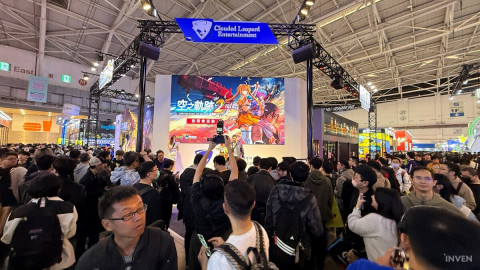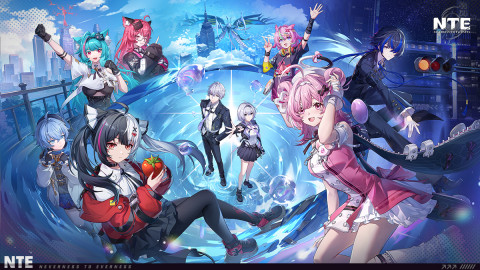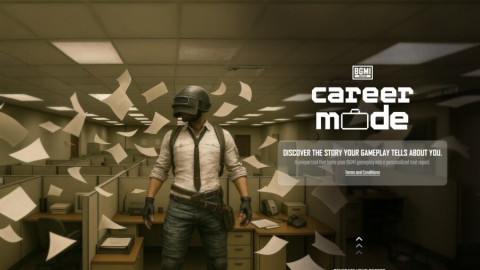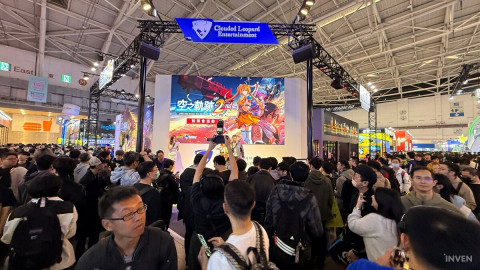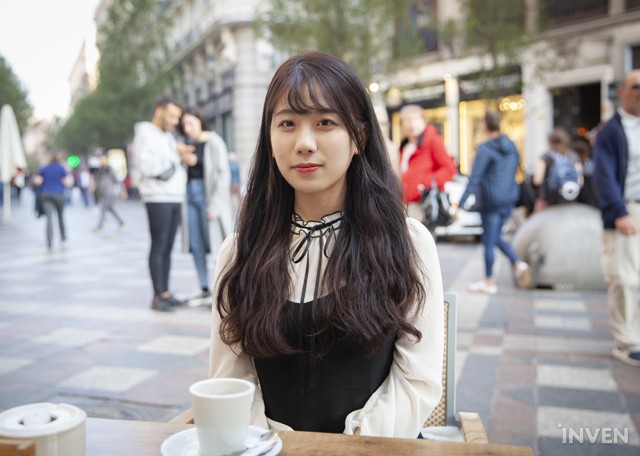
From translating in the LCK, various international tournaments, to Worlds, translator/interviewer Jeesun Park never has a day off. That being the case, it was a serious problem that she didn’t even have plans for the different types of food that she’ll try in Spain.
After a hectic quarterfinals, she hit the brakes on her busy schedule for a nice meal and a conversation. The initial plan was to have this interview in a 'European style', where it would be more casual and relaxed under sunshine and over a nice meal. However, when she was confronted by the traditional Spanish dish and wine, paella and sangria, the interview had to be pushed until after she fully enjoyed the cuisine.
What does she do to prepare for her translations? What hardships does she face, and what are her most notable interviews this year, at Worlds? The following conversation with Jeesun Park reveals some notable experiences in her journey, and her professionalism behind her work, hidden behind her bright smile.
Nice to see you.
Hehe, let’s begin!
It’s somewhat odd to greet you off screen. Can you please introduce yourself?
My name’s Jeesun Park, and I’m a translator for LCK, and currently an interviewer at Worlds.
You’ve already been Europe for over a month. How was it so far?
At first, I didn’t know how the weather was in Europe, so I had to ask around a lot. I’ve asked the people that went ahead for recommendations on what kind of clothes I should wear, and they’ve all told me to bring hoodies and cardigans. Once I got here, it was much colder than I thought, so I’m always wearing winter jackets, beanies and even scarves. It was hard to adjust to the weather, but the fact that I got to speak German with the people in Berlin was a nice experience. It was also nice to try the German food that I’ve always seen in textbooks as well. Also, it took a long time for my luggage to come out of the plane, so while I was confused at first, I found out later on that the airport I was at was notorious for lost luggage.
When I arrived in Spain after the quarterfinals, I was completely exhausted. I’ve even got a cold, and there was at least one thing wrong every single day, where I’ve suffered from having a sore throat, stuffy nose, and a sty in my eye. After the quarterfinals, I’ve been busy helping with the filming and the interviews, but I finally got some time off from today.
I’m glad to hear that you’re better.
Eating Hot Pot made me a lot better. I’ve found out that I really like hot soup, and I really recommend Hot Pot. Although there were symptoms of sickness, I’m glad that I wasn’t super sick.

Last year, you took a photo with three other iconic hosts in LoL esports (Sjokz, Candice, and Laure Valée). Did you ladies also hang out this year?
I promised Laure that we’d hang out at the finals in France. I told her I’ll make a list of things I want to do, and one of those things is to try Escargot. Sjokz was really busy with her analyst desk duties, so while I’ve only said hi to her here and there, we’d get really chatty when we’re on standby backstage. I think Candice and I have the same food preferences, because I always see her putting up pictures of delicious Asian cuisine on her social media. So I’ve asked her for info on the restaurants that she went to, and she gave me a lot of info.
During Worlds, she went to China for a day because of the Riot Games 10th Anniversary event, and on her way back, she took a picture of her bag full of instant noodles, and told me that she’ll share them with me. I was really grateful, so I gave her some face masks and instant seaweed soup that I bought to share with others.
Please send her my regards as well! Because there are fewer Korean players at Worlds this year, I feel that there’s less translation work this year. It must be a weird feeling. (This interview was conducted before the semifinals)
It’s actually better than last year. Last year was… well, at least it was in Korea last year. I’ve heard some people say that if all the Korean teams are eliminated, there would be no need for a translator. I thought to myself, “What if my work is cut short”? Fortunately, IG played in the finals, so I was able to continue working until the end.
The translators are on standby in correlation to the players left in the tournament. Last year, I was the only translator left after the semifinals. If it weren’t for the Korean players on IG, I wouldn’t have stayed. This year, the Korean teams have been doing well in the tournament, so there’s still work left for me.
What do you think about this year’s Worlds? There’s a lot of strong teams still left in the tournament.
I was really sad to see DAMWON get eliminated. It felt like watching a good friend leave, because although I haven’t really talked to them off camera, I’ve been with them since the play-in stages. I’ve seen them play really well, and although they’re young, they looked really cool as well. After hearing about how well their scrims went, I’ve thought that they might even be able to beat G2, but unfortunately, they lost.
Korean teams have really high expectations, so it especially feels bad when they get eliminated. It’s the same with Griffin. Since there’s only one team left in the tournament, the tournament feels pretty empty.

For a long time, you’ve been a part of many international tournaments. Do you feel yourself grow more and more?
I’ve definitely gained a lot more confidence. Before, I was really nervous interviewing English-speaking players. I was so nervous that I felt at ease when I wrote down both the Korean and the English version of the same question. However, as time went on, it became increasingly difficult, as I had to fix the script over and over again until the game ended. During when I couldn’t finish writing down the translations on my cue card, I was extremely nervous. Also, if I talk to the player for a little bit before the interview, it helped me figure out his intonation and accent, but the amount of time I had made it impossible.
Because of those issues, I just told myself to believe in my own skills. Even if I don’t say hi to the player before the interview, I try to not get nervous and focus. With more experience, I’ve learned to trust in my abilities, and at the same time, also learned my limits. Upon that realization, nerves naturally didn’t affect me anymore.
As you’ve translated more and more in international tournaments, foreign LoL fans got to know about you as well. Did you, at one point, ever feel pressured?
I’ve felt pressured since day 1 of starting this job. When it comes to translating, you’re ultimately relaying information, so there’s more responsibility than just a simple interview. If I interview a Korean player, then the player can fully say what they want to say, and the Korean viewers can fully understand what was said, so it’s pretty simple. However, if I’m translating, or translating and interviewing at the same time, I have to make sure to relay what the player wants to say, and if I screw up and say something else, then I or the player may be misunderstood. Fluidity is extremely important. Also, on-camera interviews are live, so the responsibility falls on me to be perfect, because the words aren’t mine, it’s the player’s.
For fluid interviews, are you always monitoring for certain specifics on a player, and even memes in the community?
I’ve realized that after last year’s Worlds. I’ve met so many different players then, and I’ve found European accents especially hard. Things like how they intonate words and roll their tongues when saying certain words are very different. That’s why I’ve watched past interviews to study, and right before the interview, I talk to them briefly about the match and what not to get comfortable and to figure out their accent.
Also, the so called ‘Internet vocabulary’ and the ‘in-game vocabulary’ are completely different from that in Korea. I had to watch streams from different countries just to figure most of them out. On Twitch, I’ve clicked on a random player or a streamer’s stream, just to figure them out. I learned that they use certain words in certain situations, and made predictions on what those words mean, and watched subtitled videos to confirm those predictions.
There’s a lot of work behind your job.
Yes, but instead of thinking of it as work, I now think of it as a hobby, where I watch English streams instead of Korean streams.
You’ve also done a lot of interviews this year. Were there any interviews that were especially interesting?
It’s a question that I always get, but I can’t remember too well. I don’t have a very good memory in general. This year… I’d have to say Jankos, Bwipo, and Doublelift. They’re all very chatty, and they give very detailed answers. As an interviewer, I love it when interviewees are like them.
On the other hand, because I have to translate in real time, I really have to focus. I always have regrets after translating these types of people. Even if it’s something small, I always go ‘Maybe I should’ve added this word in my answer’. It’s also hard to match their pace, so as the interview goes on, I tend to talk faster as well.
Controlling your pace. Perhaps that’s homework for your further growth.
I’ve recently had an enlightenment. During one interview, I’ve gotten tongue-tied and talked for more than I should have, because I couldn’t figure out a certain word. However, when I was reviewing myself in that footage, that part almost didn’t feel awkward at all. After that, when I intentionally talked slower, it was easy to listen to and didn’t feel rushed at all. Even if it felt like I was talking slow, to a point where I felt uncomfortable with how slow I was talking, it was okay for broadcast.
You must monitor yourself a lot. How do you see yourself?
I talk way too fast (laughter). When I talk, I don’t realize that I’m talking fast. I thought I was talking normally, but when I watch the replay, I talk as if I’m being chased by something. The thing with interviews is that it’s always different, where in some, I’m being told how much time I have every 30 seconds, but for others, I feel like I have all the time in the world. For the former, my pupils and my speech starts getting shaky, while for the latter, I take too much time and sometimes cuts into the time of the next match. Whatever the case may be, I have to pace really well.

After the interview with TheShy, you’ve said on social media that you were sad that you missed out on a lot of the details of the interview. Do you have a lot of regrets about it?
Yes, it bothered me a lot. TheShy’s interview was a great one, where he was emotional and personal with his answers. However, the earpieces didn’t work at all, and without it, because there’s a lot of echo, it’s really hard to hear what someone’s saying. Whatever the situation was, I had to really focus on what he was saying and conduct the interview. He’s said a lot of great things, but because of this issue, I felt bad that I couldn’t fully relay what he wanted to say.
Who makes the questions?
Last year, Jonnastrong (the in-game observer for LCK) and I made all the questions. He called me ungrateful because I’ve never officially mentioned him. Last year, I’ve created the questions and he edited them to be broadcast appropriate. However, since I’m the only one on camera, he asked me, “Why are you the only one that’s considered a great interviewer?”, and I’ve replied, “I always say that Jonnastrong is part of the creative process.” Basically, he thinks he worked just as hard for seemingly no credit, so I want to take this time to tell everyone the truth behind the interviews.
Currently, we have a lot more staff, so the writers create a lot of questions as well. If there’s not a lot of information on the players at LCS, I also help them by providing them with potential questions as well. It’s a team effort now.
Is the interview process different for players on the winning team as to the losing team? Or do you keep things neutral for both parties?
Although I’ve never interviewed the losing team in the LCK, there were cases where even if they won in the season, they were guaranteed to not make it into the playoffs. I’m very careful when conducting the so-called ‘goodbye’ interviews. However, they’re all pros, so they’re very cooperative. Those pros shared stories of their emotional hardships and what kind of help they received from the team, and I was really grateful that they shared such stories. At the same time, I knew that it would be rude to try to comfort them in any way.
For those types of interviews, I try to be as calm as I can, keep a neutral face, and ask them if I should take out certain questions beforehand. However, for the winning team interviews, I try to be as bright and congratulatory as I can.
Please keep up the good work, all the way to the finals! Lastly, is there anything you’d like to say?
Each year at Worlds, things are extremely busy up until the end of the group stages. It’s a hectic repeat process of translating after matches, rewatch them, and create more questions before the next interview, but once it’s over, I suddenly have a lot of free time on my hands. I have a lot more time from the quarterfinals, because the matches become Bo5s. I always have… a lot of regrets after the hecticness passes, because I always want to do something more during interviews. After the quarterfinals, that’s when I start to really feel that the end is near.
Still, I’m glad that I get to tour Madrid a little bit… and even watch the games. I can also experience the intense energy from the crowd as well. I think I can just take my time to head into the finals while doing so. Although I don’t know whether or not I’ll be on the finals stage for the winner’s interview, I hope that I can wear the modernized Hanbok (traditional Korean attire) while conducting the interview. I always find Candice's or the Tran Nguyen Minh Nghi(host of VCS)'s traditional dresses to be really pretty on stage. Looking back, I always wonder why I didn’t wear modernized Hanbok before, when they’re so pretty and there’s so much variety of them. So I’ve quickly ordered one and wore it for the on-air interview, and not only did it look great, the response from the dress was immensely positive. To those hosts from the other regions, I thank you for the inspiration.
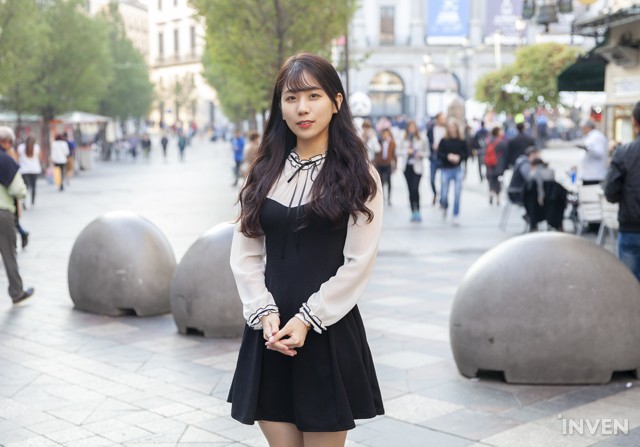
-

A managing editor who can do more things than you think.
-

Striving for perfection to achieve excellence in esports
Sort by:
Comments :1
-
0
level 1 cardosogabriel
Great interview. It’s nice too know the perspective from the translator.

